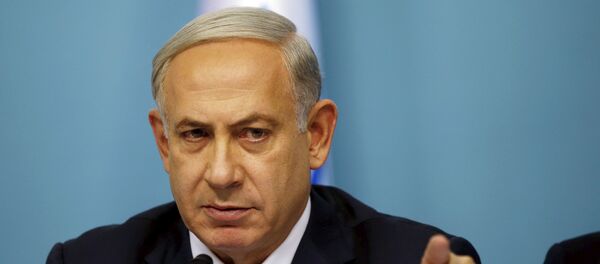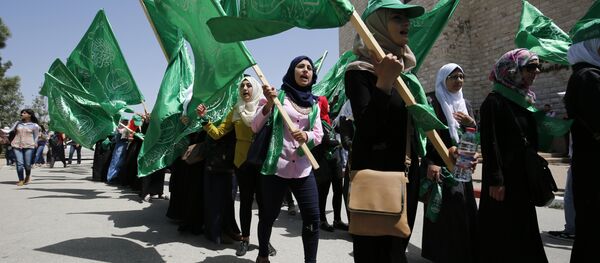Israeli Prime Minister Benjamin Netanyahu and Palestinian leader Mahmoud Abbas clashed when they both addressed the UN General Assembly in New York on Thursday.
President of the Palestinian Authority Abbas spoke first, and condemned Israel's "aggression" and "policies of collective punishment" against Palestinians, including settlement-building on occupied Palestinian territory in the West Bank.
"I am compelled to again warn that what the Israeli Government is doing in pursuit of its expansionist settlement plans will destroy whatever possibility and hopes are left for the two-State solution on the 1967 borders," Abbas told world leaders.
Netanyahu began his speech by slamming the UN, which he said "has become a moral farce," guilty of "obsessive bias against Israel."
He then attacked Abbas' speech, and the Palestinians' "refusal to recognize the Jewish state in any boundary."
He said that "this conflict is not about settlements," and accused the Palestinians of wanting to settle in the territory of northern Israel.
Netanyahu also invited Abbas to speak at the Knesset, the Israeli parliament in Jerusalem. The offer was dismissed by the Palestinian Authority, who called it "bluff."
"The UN is in no position to impose a two-state solution on the two parties. The only way there's going to be peace is if the Palestinians sit down with the Israelis and negotiate a settlement which will involve concessions on both sides."
While Israel appears willing to make concessions, Baird thinks that from its side, the Palestinian leadership needs to offer more to Israel.
"So far Israel has been willing to make concessions as they did in Oslo and as they did again in Camp David in 2000 and as they did again under Ehud Olmert in 2008, and there's been no comparable willingness on the Palestinian side to concede anything," Baird said.
The Palestinian territory of the Gaza Strip has been under the control of the Hamas Islamist group since 2007, when it won a majority of seats in parliamentary elections. The Fatah party led by Abbas remains in control of the Palestinian National Authority and governs in the West Bank, east of Jerusalem.
If the ECJ decided to follow the recommendation, Baird thinks it will give the EU less sway over Israel in any prospective peace talks.
"The Europeans have once again moved themselves to the margins, where they can't play a constructive role," Baird said.
"If they can't even recognize that Hamas is a terrorist organization when it explicitly calls for the destruction of Israel and the destruction of Jews anywhere, and continues to carry out terrorist attacks routinely, including over 10,000 rockets over the last decade, it's hard to imagine how Europeans could be a constructive force in negotiations," Baird said.




